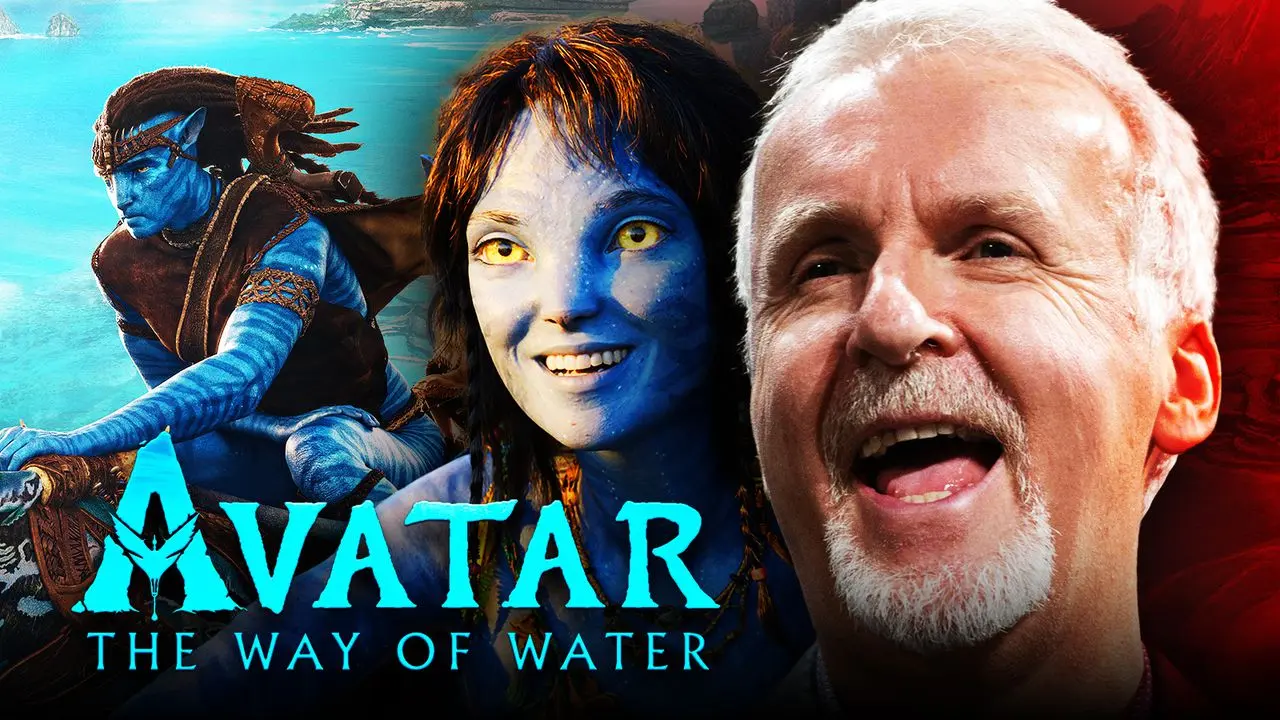
Avatar: The Way of Water director James Cameron addressed audience complaints about the sequel's use of a high frame rate.
In filmmaking, a higher frame rate is an uptick in the number of 'frames per second' that the eye takes in when watching a film.
Traditionally, films are shot at 24 frames per second. But in recent years, directors such as Peter Jackson and Ang Lee have shot entire films at a high-frame rate to considerable backlash.
Now, James Cameron is explaining why he chose this format for Disney's Avatar 2 and his goal to make it better.
James Cameron Defends Avatar 2 Decision

At a fan screening for Avatar: The Way of Water, James Cameron responded to criticism about the use of a high frame rate at certain points in the sequel.
On Twitter, Discussing Film's Andrew J. Salazar shared that an attendee complained that the high 48 frames-per-second rate "looks too much like a video game," leading Cameron to respond with the following:
"Someone just said they weren't a big fan of the HFR. Said it looks too much like a video game. James Cameron's response: 'I think they are some people who are more bothered by it than others... our goal is to keep making it better.'"
At the screening, Cameron went on to point out that audience complaints were largely for "scenes on land" as opposed to those underwater:
"Some extra tidbits on the HFR. James Cameron is aware that it works perfectly underwater and that most complaints are for scenes on land essentially. He says it's mostly there to help 3D but knows there's way more progress to go."
The director has been transparent about his decision to up the frame rate as well as how he planned in advance to counteract its issues.
At the Busan International Film Festival in South Korea, shared via Variety, Cameron explained that the high frame rate was used "where we want a heightened sense of presence," but it doesn't benefit "scenes that are more mundane:"
“We’re using [high frame rate] to improve the 3D where we want a heightened sense of presence, such as underwater or in some of the flying scenes. For shots of just people standing around talking, [high frame rate] works against us because it creates a kind of a hyper realism in scenes that are more mundane, more normal. And sometimes we need that cinematic feeling of 24fps."
The director also acknowledged his awareness that theaters can't support switching between 24 and 48 frames per second.
Therefore, for a 24-frame scene in Avatar 2, "we just double the frames... but the viewer doesn't see it that way:"
"Can theatres support variable frame rate, switching back and forth within the movie between 24fps and 48fps? The answer is no, they just run it at 48fps. In any part of the scene that we want at 24fps, we just double the frames. And so, they actually show the same frame twice, but, but the viewer doesn’t see it that way. And so, we just we’re essentially using a simple hack to use the high frame rate platform that already exists.”
Will Avatar 3 Have Similiar Frame Rate Issues?
The problem with movies that are shot with a higher frame rate is that it's noticeable.
Filmmakers, like James Cameron, have chosen the technique for a smoother or more realistic picture, but the high-stimulation image tends to take audiences out of the moment instead.
However, in Cameron's defense, the technique was used selectively in Avatar 2 and likely benefited its underwater sequences, of which there were many.
Also, the director clearly isn't content with the format as it currently exists, saying, "our goal is to keep making it better."
Since Avatar 3 was mostly shot at the same time as Avatar 2, the question is whether Cameron intends to improve upon these issues in the upcoming film or if audiences will have to wait until Avatar 4.
Avatar: The Way of Water is playing in theaters worldwide.









